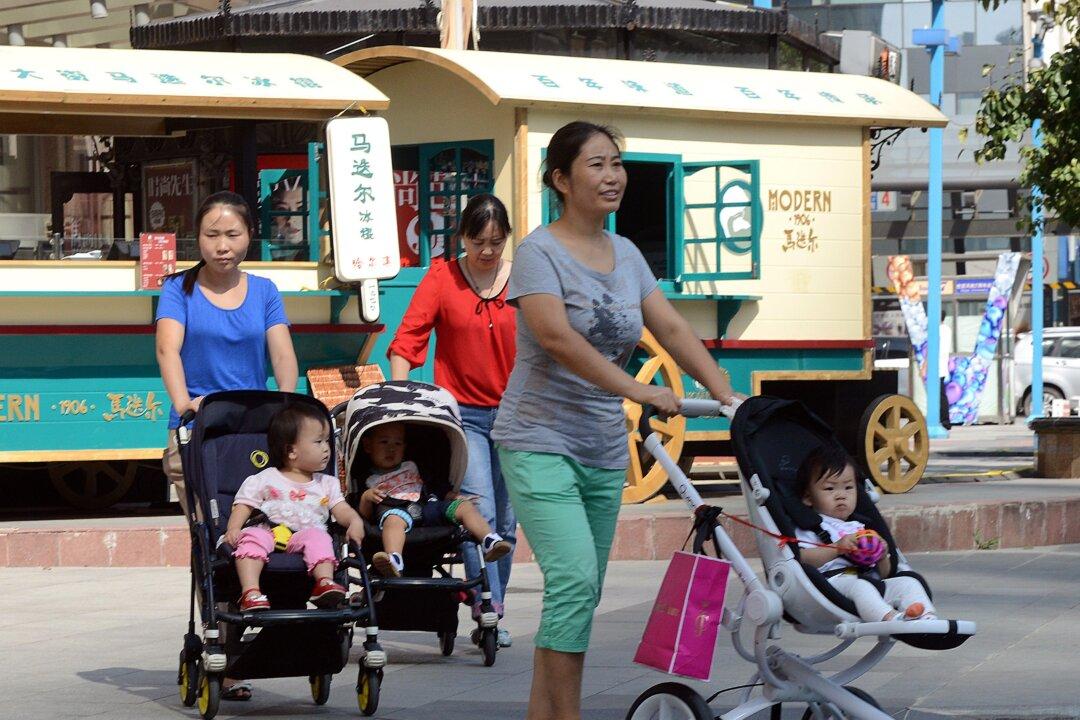Although last year’s census data recently released by Chinese authorities continues a six-year-long trend of improvement in the nation’s gender gap, China’s male-female sex ratio at birth was the most imbalanced of any country worldwide.
On Feb. 3, China’s National Health and Family Planning Commission published data recording 115.9 boys born for every 100 girls in the year 2014, according to state-run media Xinhua. The gap between male and female children born has been closing since 2009.
In 2014, the global sex ratio at birth was about at 107 boys to 100 girls, according to estimates produced by the Central Intelligence Agency. Between 103 to 107 boys born for every 100 girls is considered a balanced sex ratio.




